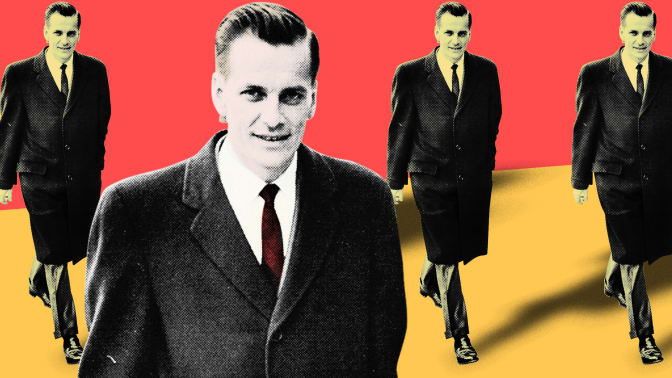
From Christopher Dickey, the author of "Our Man in Charleston: Britain's Secret Agent in the Civil War South" and "Securing the City," this site provides updates and footnotes on history, espionage, terrorism, fanaticism, policing and counterinsurgency linked to Dickey's columns for The Daily Beast and his other writings; also, occasional dialogues, diatribes, and contributions from friends.
Tuesday, October 31, 2017
Monday, October 23, 2017
Monday, October 16, 2017
Recent writing: How a British Spy Drank His Way Across the Americas—and Missed the Civil War
How a British Spy Drank His Way Across the Americas—And Missed the Civil War
Richard Francis Burton was one of the great adventurers of the Victorian era, and a spy. But several weeks just before the Civil War are curiously missing from his life's account.
For more stories from the last several months, several of them written with colleagues, visit:
Saturday, October 14, 2017
Sometimes I take a photograph that just makes me feel good ...
A post shared by Christopher Dickey (@csdickey) on
Sunday, October 08, 2017
Tuesday, October 03, 2017
What's it take to make an assault rifle "full auto"? Not so much ...
When you hear the NRA and is political clients say it's hard to get guns that will fire full auto, check out bump stocks, paper clips, and other ways to make an AR-15 fire full auto, or close enough. It will be interesting to see whether Paddock managed to get "real" fully automatic weapons or some of these variations. As if it would make any difference to the victims.
Mass Shooting at a Concert in 1903 - After Las Vegas, Republishing My Notes on the Winfield Massacre
This is excerpted from one of my Shadowland columns for Newsweek in 2003. I reread it this morning in light of the Las Vegas massacre, but also remembered Trump’s past remarks about how terrorism supposedly was eliminated in the Philippines ...
The down-home massacre in Winfield, Kans., took me by surprise when I came across it the other night while reading up on the history of this small town near the Oklahoma border.
The down-home massacre in Winfield, Kans., took me by surprise when I came across it the other night while reading up on the history of this small town near the Oklahoma border.
I'm in the middle of researching a novel about terror in the American heartland, but the story of Gilbert Twigg got me thinking about the cost of being an occupying nation.
Here's the tale. One fine summer evening just 100 years ago, Gilbert Twigg "deliberately fired into the crowd of promenading people, at Ninth Avenue and Main Street, as Camon's Band was in the midst of its regular weekly concert." Six people died that night, and four more in the following days. Many more were injured. Described in earnest detail by correspondents of The Winfield Courier, the scene of Twigg
emptying his shotgun and rifle at the bustle-and boater-clad crowd unfolds like a production of "The Music Man" interrupted by a rampaging Rambo. "At the first shot fired, Clyde Wagoner's horn was shattered in his hand and ![]() at the next, Rev. Oliver fell from his chair on the band stand. It would beggar fancy to attempt to describe the suffering of the injured, and the sight of prominent young businessmen dying in pools of their own blood made strong men turn aside their heads. A handful of brains on the pavement in front of the Craig book store, with young Dawson [Biliter] laying within a few feet in a pool of his own blood, is a representative picture of the vengeance meted out to an innocent public by the demented man.
at the next, Rev. Oliver fell from his chair on the band stand. It would beggar fancy to attempt to describe the suffering of the injured, and the sight of prominent young businessmen dying in pools of their own blood made strong men turn aside their heads. A handful of brains on the pavement in front of the Craig book store, with young Dawson [Biliter] laying within a few feet in a pool of his own blood, is a representative picture of the vengeance meted out to an innocent public by the demented man.
"After firing his first two shots, Twigg arose and each time he fired he took a step backward, until he was in the alleyway back of Craig's where he came face-to-face with night watchman George Nichols and Cal Ferguson, who out of the crowd of several thousand people, were the only men who displayed any disposition to follow the veritable human canon [sic], and then still believing himself innocent and the victim of plotting enemies, Twigg took his own life, rather than be taken alive."
Twigg, we can infer, was a paranoid. He was also an Army veteran of the American military occupation of Cuba and the Philippines that began four years before. "His military training came in good play," wrote the Courier. "He chose the one evening of each week when most people congregate in a central place, he chose the spot from which to fire with the skill of a general; he commenced firing at a range of about 125 feet from the band stand; he dropped on one knee at each fire, then retreated backward, while reloading, then dropped on his knee again and fired. These are the skirmish line tactics of the army...."
Of course, nobody remembers the Winfield massacre today. Just as most people don't remember the savage wars--what Rudyard Kipling called "the savage wars of peace"--in which Gilbert Twigg enlisted. The people of the Philippines, it turned out, did not welcome American occupation after the Spanish-American War, and "the deteriorating situation provoked an ugly reaction among some American soldiers, who committed atrocities such as torturing prisoners," according to "For the Common Defense," a scholarly history of the U.S. military by Alan R. Millett and Peter Maslowski. "The final pacification campaigns on Samar and in Batangas were brutal. The ghastly massacre of a U.S. infantry company in Balangiga, Samar, in September 1901 whipped Americans into a vengeful fury." How could these people be so ungrateful? Some hawks, who were known more forthrightly as "imperialists" in those days, blamed "false humanitarianism" for the debacle, and a general known as "Hell Roarin' Jake" Smith was dispatched to carry out a scorched-earth campaign. What were called "concentration camps" became a vital part of the strategy in those days, just as "strategic hamlets" would be important in Vietnam. ... (The column continues with the theme of occupation)
 |
| Gilbert Twigg |
"After firing his first two shots, Twigg arose and each time he fired he took a step backward, until he was in the alleyway back of Craig's where he came face-to-face with night watchman George Nichols and Cal Ferguson, who out of the crowd of several thousand people, were the only men who displayed any disposition to follow the veritable human canon [sic], and then still believing himself innocent and the victim of plotting enemies, Twigg took his own life, rather than be taken alive."
Twigg, we can infer, was a paranoid. He was also an Army veteran of the American military occupation of Cuba and the Philippines that began four years before. "His military training came in good play," wrote the Courier. "He chose the one evening of each week when most people congregate in a central place, he chose the spot from which to fire with the skill of a general; he commenced firing at a range of about 125 feet from the band stand; he dropped on one knee at each fire, then retreated backward, while reloading, then dropped on his knee again and fired. These are the skirmish line tactics of the army...."
Of course, nobody remembers the Winfield massacre today. Just as most people don't remember the savage wars--what Rudyard Kipling called "the savage wars of peace"--in which Gilbert Twigg enlisted. The people of the Philippines, it turned out, did not welcome American occupation after the Spanish-American War, and "the deteriorating situation provoked an ugly reaction among some American soldiers, who committed atrocities such as torturing prisoners," according to "For the Common Defense," a scholarly history of the U.S. military by Alan R. Millett and Peter Maslowski. "The final pacification campaigns on Samar and in Batangas were brutal. The ghastly massacre of a U.S. infantry company in Balangiga, Samar, in September 1901 whipped Americans into a vengeful fury." How could these people be so ungrateful? Some hawks, who were known more forthrightly as "imperialists" in those days, blamed "false humanitarianism" for the debacle, and a general known as "Hell Roarin' Jake" Smith was dispatched to carry out a scorched-earth campaign. What were called "concentration camps" became a vital part of the strategy in those days, just as "strategic hamlets" would be important in Vietnam. ... (The column continues with the theme of occupation)
Subscribe to:
Posts (Atom)


